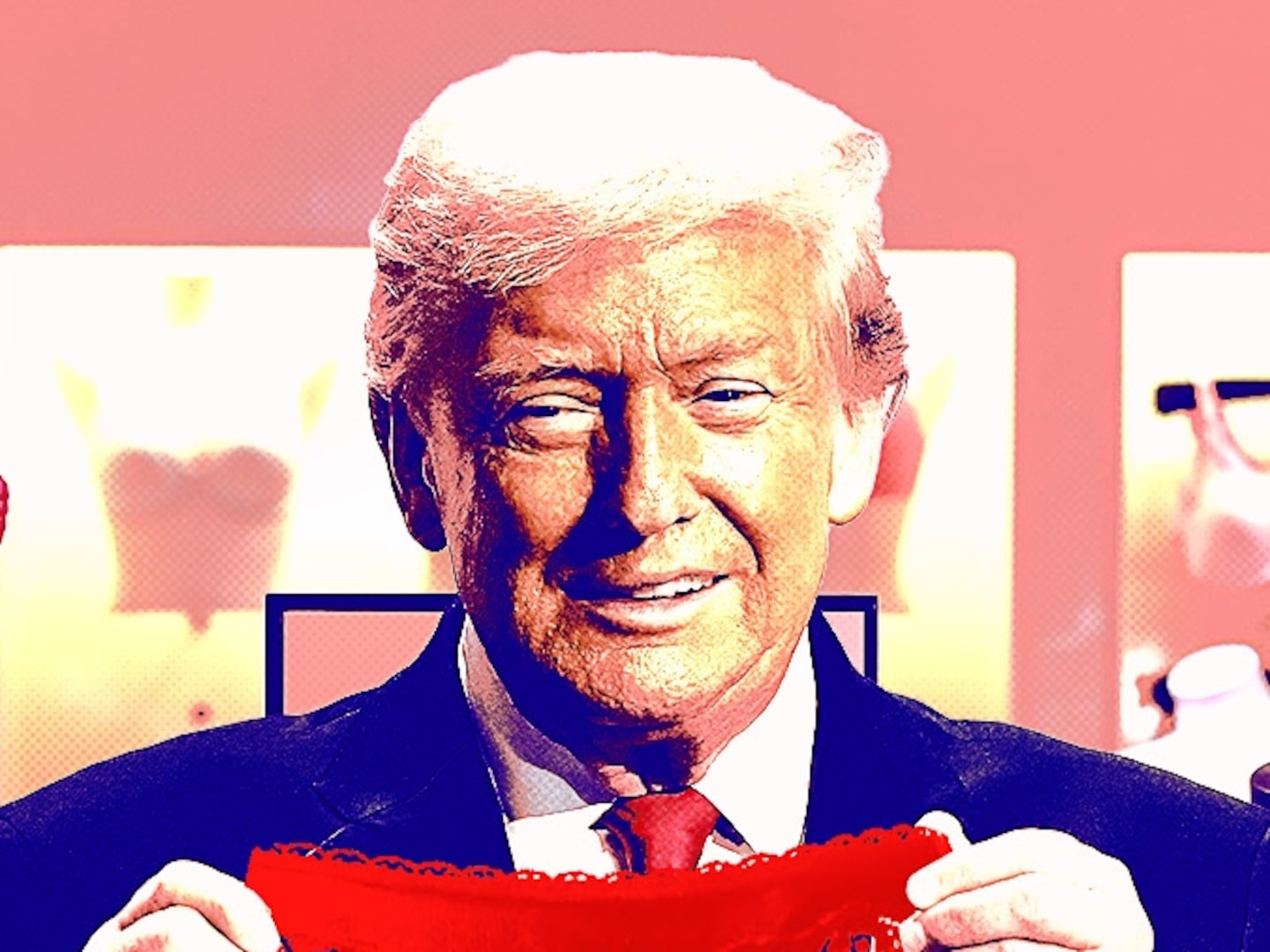It is without a doubt good news for the stoner set—especially those aiming to make marijuana their legitimate business.

Deputy Attorney General James Cole announced Thursday the federal government would not sue to block the laws enacted last year in Washington and Colorado that legalized weed in those states. He could have brought out the big guns, filed a big lawsuit, and set up a big states’-rights battle that would quickly snuff out the enthusiasm about a future greener both by plant material and cash, and he didn’t. He backed off.
Justice issued a memorandum to all U.S. attorneys that outlined the government’s long-awaited response to Washington and Colorado’s initiatives. They may have legalized pot, but the federal government didn’t, and what everyone has been wondering over the past 10 months is how the Obama administration would respond. Weed-based businesses have cropped up, but nervously, dealing only in cash and with a wary lookout for a raid by federal agents or a stern letter from the IRS. Lawmakers have marched along and begun designing the licensing systems and infrastructure in each state that would allow for marijuana to actually be bought and sold and regulated and taxed, knowing the feds could blow it all to smithereens at any moment.
Now, there’s some clarity. The memo released Tuesday walks the very delicate tightrope on which the feds have been perched ever since Washington and Colorado decided to do what they did. Marijuana remains not just illegal under federal law, but just as illegal as heroin, so it was never an option for Attorney General Eric Holder to simply email his deputies and say “OK, we’re cool. Lay off of the herb.”
What he did instead was to speak in code, in a way, outlining a list of “priorities” to determine whether or not to file federal charges in a pot case. Those include keeping weed out of the hands of minors; keeping the profits from criminal enterprises, gangs, and cartels; keeping the plant from moving from a “legal” state to an illegal one; preventing marijuana from being used as a “cover” for trafficking other illegal drugs, and so on.
Nothing about what Washington and Colorado legalized is in any explicit conflict with those priorities. The states didn’t legalize young people toting joints, just recreational use among adults. So Holder’s bottom line was this: as long as your laws don’t interfere with my priorities, we’re not going to send in the DEA. We reserve the right to send in the DEA, but only if we think one of those priorities is being undermined.
As if to justify this seemingly tacit approval of a law that seems blatantly at odds with federal statutes, the memo points out that the federal government has always left it to the states and local law-enforcement agencies to handle the small stuff, of small-time possession “for personal use on private property.” In other words, it’s not some big policy shift to continue to let the states decide whether to prosecute—or legalize—getting high in your own house. Same goes for the use of medicinal marijuana—supposedly.
But the memo also goes so far as to say the size of a grow operation or other cannabis business should no longer by itself influence whether the feds get involved, at least in these states. That is a clear shift, one that the government sought to nuance thusly:
In the old days, before there was a looming state regulatory system of robust laws governing how and when and where weed might be sold and purchased, large-scale marijuana operations were probably certainly running afoul of the aforementioned federal priorities. But a well-designed and well-enforced state system should ensure that even big commercial marijuana operations don’t traffic their product to other states, peddle to youngsters, or mask the distribution of kilos of cocaine. Good state law “may allay the threat that an operation’s size poses to federal enforcement interests,” the memo reads. “Accordingly, in exercising prosecutorial discretion, prosecutors should not consider the size of commercial nature of a marijuana operation alone as a proxy for assessing whether marijuana trafficking implicates the department’s enforcement priorities listed above.”
See how they did that? Effectively, the Obama administration found a way to say “It’s still illegal, but we don’t care. Unless you make us care. And then you’re in big trouble.”
That’s why Thursday’s celebration was a cautious one. Without a doubt, it will loosen the purse strings of nervous investors. Without a doubt, there’s clarity now for lawmakers in Washington and Colorado about how precisely they should design their regulatory systems so as not to clash with the feds.
“This is a green light for our entire industry to move forward,” said Robert Corry, a lawyer and medical-marijuana investor in Denver. “There’ll be a lot more individual investment coming into Colorado now. They do leave a slight crack in the door, but to me it looks like unilateral disarmament.”
What other ripple effects could the federal government’s tacit approval of weed legalization have? Among the possibilities:
Other states hop on board. Marijuana is a drug that police officers and prosecutors across America seem increasingly reluctant to have to deal with, given the same kinds of higher priorities outlined in the memo from Justice. With this new clarity, it’s foreseeable that other states will be newly emboldened, said Rachel Gillette, executive director of the Colorado chapter of the National Organization for the Reform of Marijuana Laws. “I think it provides somewhat of a green light for other states to move forward with a strong regulatory system,” Gillette said.
Legitimized transactions. What has thus far been a huge barrier to the marijuana business is the illegality of every single weed-related transaction. No credit cards allowed at dispensaries. No loans from banks for an edibles bakery. No writing off your grow equipment as business expenses on your federal taxes. All of those other impediments have dampened the enthusiasm of pot investors and pot entrepreneurs. Now, maybe the Treasury loosens up, and the banks loosen up, and these transactions don’t have to involve so much implicitly illicit cash, says Mark Kleiman, a professor of public policy at the University of California, Los Angeles, and the official consultant for the state of Washington’s effort to implement the new law.
“This is a substantial business: $300 million in Washington State alone,” Kleiman said. “It’s entirely in cash. It seems to me that Treasury ought to figure out a way to get this into the banking system.”
More worry for the medical-marijuana camp. Seattle attorney Hillary Bricken does see one problem with that part of the memo that deals with state regulatory frameworks as the shield against a federal crackdown: when it comes to medical marijuana in states like Washington and California, there isn’t one. The laws are vague and often exploited, which is the very argument the federal government has used in recent raids of dispensaries in both states: you guys weren’t policing this well enough, blatantly illegal distribution was all over the place, masquerading as “medicine,” and we’re going to shut it down.
Washington and Colorado’s laws have little to do with medicinal marijuana. The regulatory framework now under design is for the distribution of recreational pot, not medicinal pot. So those companies that cater to medicinal users are either going to have to switch gears or worry even more now about federal prosecution than they did before, says Bricken, whose firm specializes in advising clients who run pot-related enterprises.
A better approach to the war on drugs. To Washington ACLU drug-policy director Alison Holcomb, the primary author of that state’s initiative, the federal government’s decision addresses a more important point: “How we are going to dismantle the war on drugs, and start to think about more effective ways to deal with drug use in our society, that doesn’t have the horrific collateral consequences the prohibition policy has come with,” she told The Daily Beast. “What this memo to me signals is that state and local policy makers and community activists should take note, be brave, and advance ideas about different ways to approach the whole range of drug-policy issues we tackle.”






